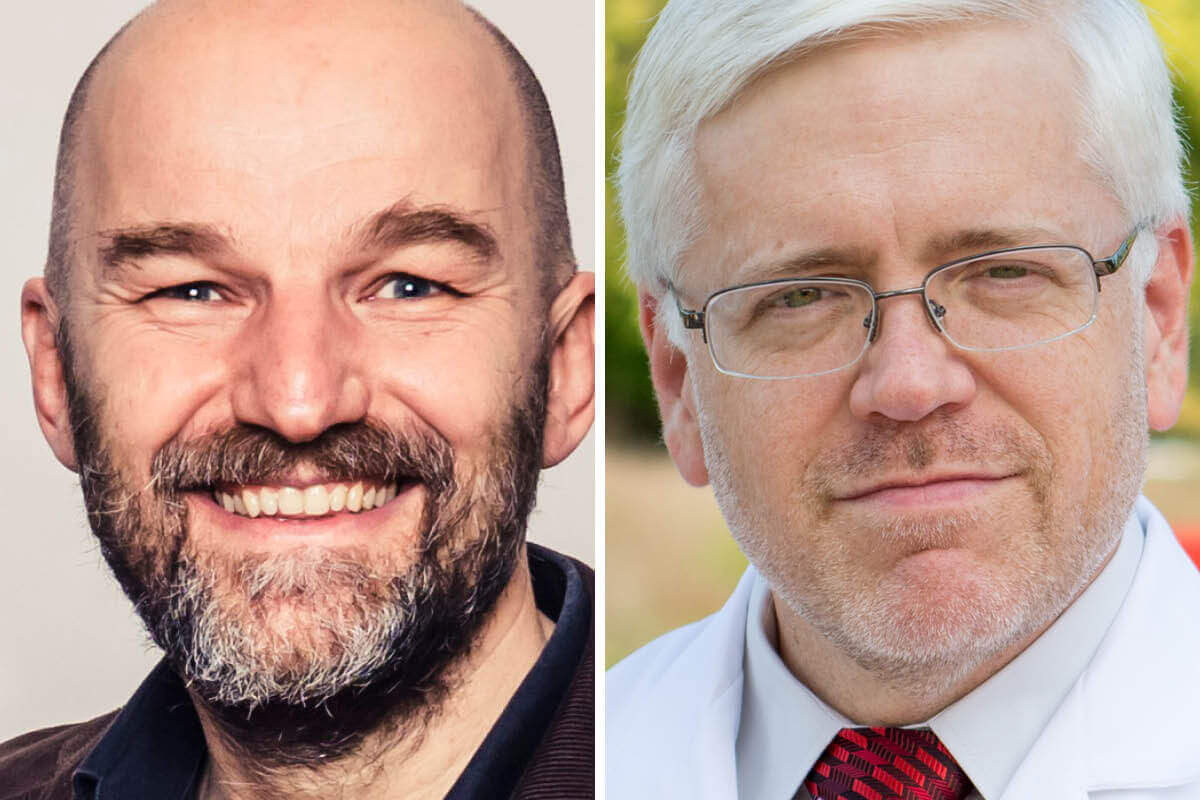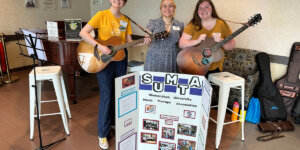Visiting Adjunct Professor of Voice Science Christian T. Herbst, Ph.D., and Director of the Janette Ogg Voice Research Center and Associate Professor of Voice (Baritone) and Voice Pedagogy David Meyer, D.M., collaborated with University of Arizona Associate Dean for Faculty Affairs in the College of Science Brad Story, Ph.D., in research that examined the nature of “belting,” a style of singing common in musical theatre repertoire. There is an ongoing controversy surrounding this type of singing: voice teachers propose that it should be produced with “speech-like,” unmodified vowels, but voice science literature suggests that it is produced with a specific timbral quality characterized by a dominant second harmonic.
For this study, the authors simulated 12,987 vowel + sung note combinations. These computer simulations were evaluated with a novel acoustical analysis paradigm to determine if speech-like vowels can, in fact, be used in singing across a singer’s entire musical pitch range. Results indicate that singers who adhere to the stylistic ideal of “belting” rely considerably on vowel modification, especially in high-pitched singing.
The targeted audience of this paper are (singing) voice scientists and voice pedagogues. This paper’s findings may lead to broad discussion in the pedagogical community, and the refinement of current voice teaching methodology and concepts. It will be available in early May online at https://doi.org/10.1016/j.jvoice.2023.01.004.
Herbst is also a research associate of the Janette Ogg Voice Research Center at Shenandoah Conservatory and on the faculty of the Department of Cognitive Biology, University of Vienna and the Department of Vocal Studies, Mozarteum University Salzburg, Austria. Dr. Herbst was recently credited with being amongst the top 2% most cited voice scientists in the world in 2021.
Visit www.davidmeyervoice.com to learn more about Dr. Meyer.




